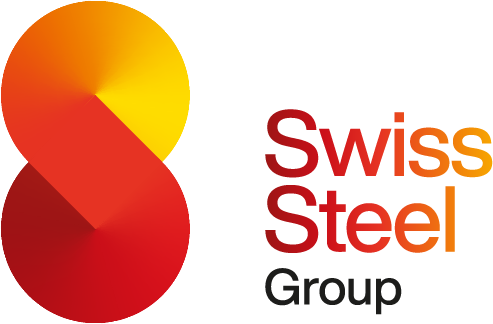German government supports hydrogen project for sustainable steel production of Swiss Steel Group at Deutsche Edelstahlwerke
Deutschen Edelstahlwerke (DEW) as part of Swiss Steel Group, was able to win an important funding project from the German government. This funding project will pave the way to a CO2-neutral future for steel production and processing at Swiss Steel Group by a further step.
Swiss Steel Group is one of the leading manufacturers of long steel products. The funding project, entitled "H2-HotRoll", deals with the conversion of natural gas-fired reheating furnaces to firing with green hydrogen. The planned project primarily addresses the goals of the national hydrogen strategy of 10.06.2020 by using hydrogen as an energy carrier to substitute natural gas in the heating technology of thermoprocessing plants. This is funded by the 7th Energy Research Program of the Federal Government: funding call "Technology Offensive Hydrogen". Organized and managed by Project Management Jülich (PTJ).
In order to achieve the European Union's climate targets, energy-intensive industry in Europe in particular must be enabled to do so. To enable the use of green hydrogen in this context, the effects of hydrogen use on steel production and processing must first be investigated. In the steel industry, the first priority is currently to reduce CO2 emissions for steel companies in primary steel production via the blast furnace route.
Steel companies such as Swiss Steel Group, which produce via the so-called secondary or electric steel route, have a major advantage over this technology in terms of CO2 emissions. In this process, large quantities of steel scrap are melted down in an electric arc furnace. By using green electricity from renewable sources such as hydroelectric, wind or solar power, it is already possible to reduce a large proportion of CO2 emissions. Swiss Steel Group is already successfully pursuing this path wherever it has access to sufficient green energy. But even in the further production and processing of the steel, in the so-called downstream process, there are significant CO2 emissions from the use of natural gas in the hot forming and heat treatment of the steel.
In order to remain competitive in a global comparison and to further reduce the CO2 footprint, considerable investments must also be made in the secondary steel route. CO2 reduction is not only required by lawmakers and increasingly desired by end consumers, but is also imperative to achieve climate targets.
Together with project partner VDEh-Betriebsforschungsinstitut (BFI), Deutsche Edelstahlwerke is now setting out to make its infrastructure fit for the use of green hydrogen. That this is no simple undertaking is already evident from the sums required for the funding project alone. With a project budget of just over one million euros, the basis for the technical conversion to hydrogen-powered furnaces can be laid over three years. The focus will be on continuously operated reheating furnaces with a capacity of more than 10 MW. As hydrogen is a medium with different physical properties compared to natural gas, the funding project addresses the expected impact and the adaptation of the existing furnace infrastructure e.g. burners, valves and furnace chamber. This infrastructure needs to be adapted to the different combustion behavior of the two gases. Hydrogen, for example, has a higher flame temperature and an increased water content or reduced CO2 content in the hot gas. This leads to a change in the heat transfer in the furnace and a changed influence on the processed material. Here, different scale formation and changed decarburization behavior could occur if the process is not optimally adjusted.
One challenge in this project already became apparent during the planning phase before the application was submitted: A continuously operated reheating furnace with a connected load of more than 10 MW was to be operated for the project with hydrogen, which ideally would be generated green. This would actually require a connection to a hydrogen pipeline, but this is not yet feasible in Germany. Accordingly, the project team, led by Gregor Ebbers from Deutsche Edelstahlwerke and Sebastian Bialek from BFI, had to come up with an alternative. A smaller reheating furnace in the forging store at the Krefeld site of Deutsche Edelstahlwerke is now being converted for the project in order to carry out process trials. This furnace, with a total connected load of maximum 2MW, can be supplied with hydrogen from tank farms during the project phase. The operating tests will be accompanied by CfD simulations and further tests in the BFI pilot plant.
But what about the prospect of large quantities of green hydrogen in the Federal Republic of Germany? This is where the cat bites the tail. Because there is not yet a clear statement on this for the various potential customers. So how should industry prepare for the use of hydrogen? The project team has also thought extensively about this. Should a slow ramp-up of green hydrogen occur, the funding project will also examine how the furnace infrastructure reacts to a mixture of natural gas and hydrogen. The effects of increasing hydrogen levels in the fuel gas on the furnace infrastructure are also being studied. It is expected that a small proportion of hydrogen will work with the existing kiln configuration. Only at higher proportions will adjustments have to be made to the fittings and the measurement and control technology. The control process of the furnace will be selected in such a way that a mixture of natural gas and hydrogen also works well as a fuel gas.
The aim of the funding project is to draw up a catalog of measures and estimate the costs of converting further furnaces from natural gas to hydrogen. Potentials and obstacles are to be identified in order to achieve a higher overall acceptance of hydrogen technology.
About Swiss Steel Group
The Swiss Steel Group today is one of the world’s leading providers of individual solutions in the special long steel products sector. The Group is one of the leading manufacturers of tool steel and non-corrosive long steel on the global market and one of the largest companies in Europe for alloyed and high-alloyed constructional steel. With close to 10,000 employees and in-house production and distribution companies in over 30 countries and on 5 continents, the company guarantees its customers a global supply and customer service, and offers them a complete production portfolio as well as sales and services around the world.
Contact:
Helmut Freiherr von Fircks
Communications
Steeltec AG
c/o Swiss Steel Holding AG
Landenbergstrasse 11
CH 6005 Lucerne
M: +41 795484895
M: +49 172 296 2222
h.freiherrvonfircks(at)ext.swisssteelgroup.com
Photo credit: Swiss Steel Holding AG
Bilderstrecke (klicken Sie auf ein Bild für eine Vergrößerung)


